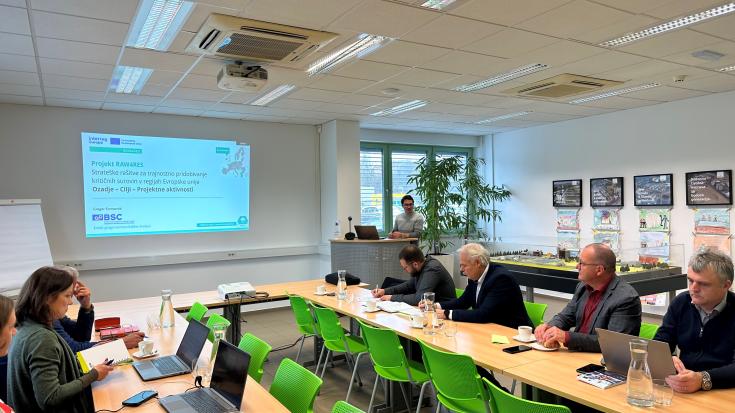2nd RAW4RES Stakeholder meeting in Kranj, Slovenia

BSC Kranj successfully convened their 2nd RAW4RES Stakeholder Meeting, fostering a dynamic exchange of insights among key stakeholders including Public Utility Kranj, e-waste management scheme ZEOS, and FUNDECYT’s "O4i" innovation office. The focus of the meeting centered on exploring policy measures and project proposals aimed at efficiently supporting the "Recycling of waste electrical and electronic equipment (WEEE), batteries and accumulators (WPBA + WIBA)”.
Stakeholders were resolute in their acknowledgment of the importance of policy enhancements and practical initiatives to extend product lifespan through reuse strategies. These encompassed activities such as collecting, repairing, remanufacturing, and reselling functional appliances. Moreover, there was unanimous agreement on the significance of reducing usage rates through sharing economy models and Product-as-a-Service (PaaS) schemes. Notably, these efforts have been effectively implemented and managed through past and ongoing Interreg and LIFE projects throughout Slovenia.
The discussion prominently highlighted the under-addressed challenge of enhancing domestic recovery of critical raw materials (CRMs) from e-waste. Presently, recycling operations are primarily outsourced to foreign facilities, resulting in the loss of valuable inputs crucial for developing secondary raw materials markets within the region. These materials are indispensable for the production of circular household appliances, solar panels, components for electric vehicles, wind turbine motors, and more. Additionally, the frequent and long-distance transport of e-waste escalates greenhouse gas emissions and logistics costs for e-waste management schemes. Addressing this challenge is imperative for advancing environmental sustainability and economic prosperity within the region.
Participants left the meeting inspired and motivated to actively engage in upcoming events, including:
- A workshop focused on valorizing mining waste and revitalizing closed mines, conducted virtually by BIRDA.
- A site visit aimed at ensuring compliance with sustainability certifications and green investment criteria, organized in France by TEAM2.
Looking ahead, the project will continue to tackle pressing challenges and explore innovative solutions in forthcoming meetings:
- Circularization of energy and technology industries’ products.
- Recovery of Rare Earth Elements from wasted permanent magnets, featuring insights from the EU frontrunner Josef Stefan Institute, Department for Nanostructured Materials.
- Exploration of bauxite and germanium extraction at a depth of 300 meters, presenting recent research findings on deposits’ potential by the Geological Survey of Slovenia.
- Industrial symbiosis initiatives, focusing on exchanging by-products and residuals from manufacturing e- and tech-devices.